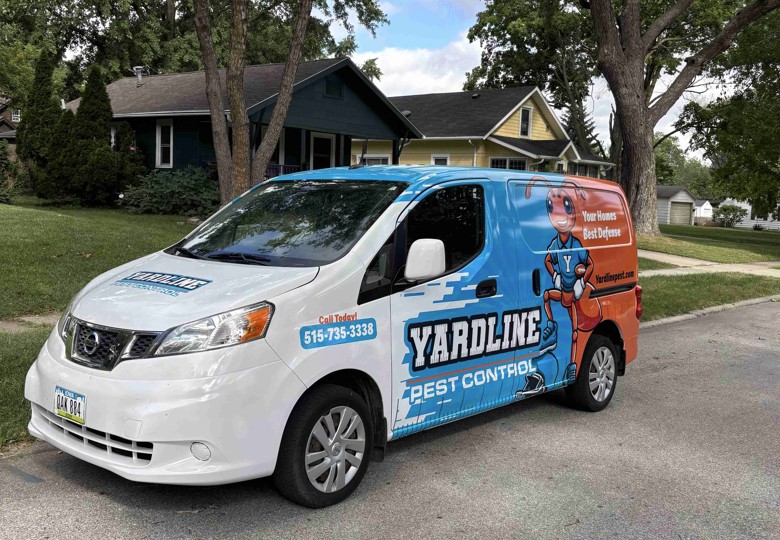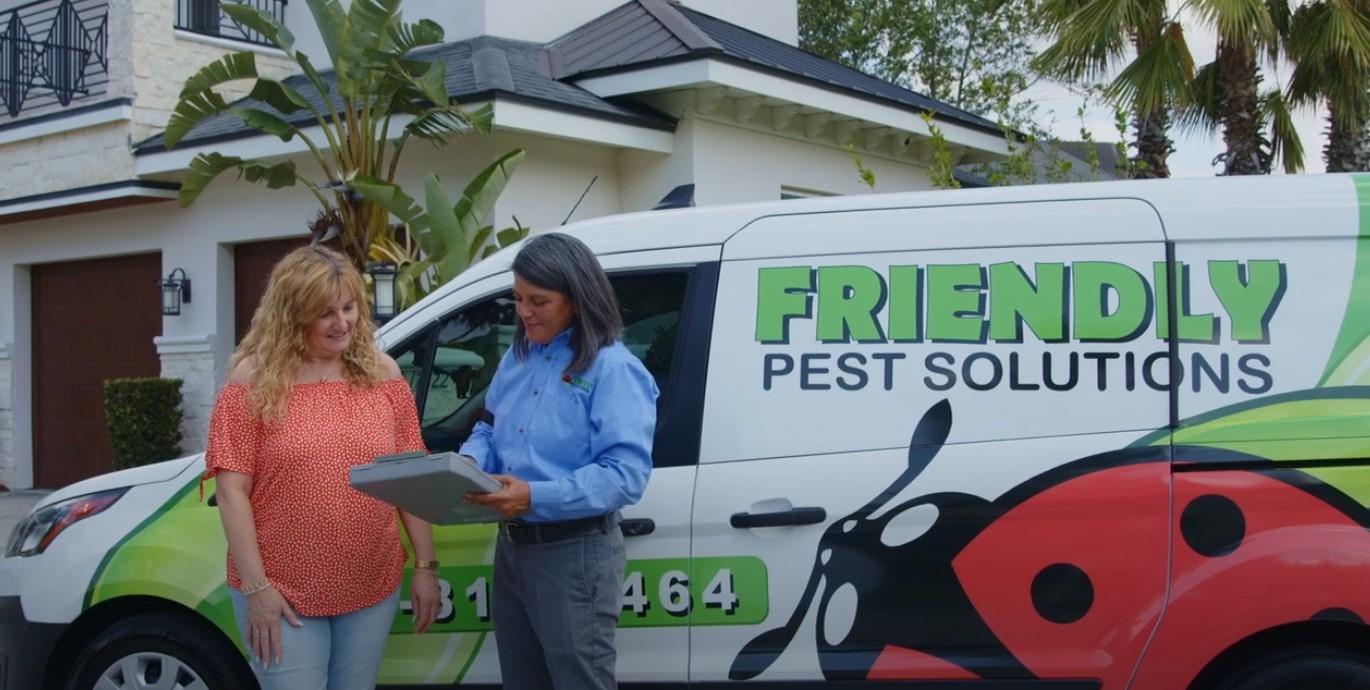15 Essential Lawn Care Interview Questions & Answers

Hiring the right candidates for your lawn care business can be challenging.
Finding the right individuals with the necessary skills and experience, a strong work ethic, and a customer service mindset is crucial.
One way to ensure you hire the right people is to arm yourself with the right questions.
This guide will equip you with targeted interview questions to efficiently identify skilled and reliable lawn care workers who can be trusted to deliver quality work.
Essential Lawn Care Skills & Knowledge Questions
Hiring candidates with essential lawn care skill sets and knowledge ensures they can efficiently and safely perform the tasks required to maintain healthy, attractive lawns.
Writing a clear job description outlines the specific job requirements and expectations and should attract the right candidates with the necessary skills and knowledge you’re looking for.
In addition to finding the right staff to perform routine lawn care services, you also need to hire employees who are adept at customer relationships, ensuring your lawn care business always provides the best customer experience.
Let’s dive right into the top 15 lawn care interview questions for potential hires.
Question 1. Can you describe your experience in lawn care?
Why you should ask this question: Understanding a candidate’s past experience provides insight into their practical skills and knowledge in lawn care. It determines whether they have the hands-on expertise necessary for the job. Their experience level indicates how quickly they will adapt to your landscaping company’s processes and standards, ultimately understanding their work quality and whether you’ll need to provide additional training.
Example of a good answer: “I have worked in lawn care for over five years, performing various tasks such as mowing, edging, fertilizing, and pest control. I have experience working with different types of grass and plants, ensuring they receive the proper care. In my previous job, I was responsible for maintaining landscaping equipment, making decisions, and performing necessary repairs to avoid service delays. My previous roles involved both residential and commercial properties, allowing me to adapt my techniques to different environments and customer needs.”
Question 2. Have you ever worked with a lawn care crew before?
Why you should ask this question: Teamwork is essential in lawn care services. Understanding the candidate’s experience working in a team can help you assess their ability to be a team player. Working with a team requires good communication skills, the ability to follow directions, and a willingness to help others complete tasks.
Example of a good answer: “Yes, I have worked with lawn care crews in my previous jobs. Together, we coordinated our efforts to complete tasks efficiently and shared responsibilities to maintain high customer standards. I also worked well with existing teams, quickly adapting to their established routines, contributing to completing tasks on time, and consistently delivering high-quality customer service.”
Question 3. What are the key steps involved in a typical lawn care service?
Why you should ask this question: This question assesses the candidate's understanding of the standard procedures in lawn care. A thorough knowledge of the steps involved, from initial assessment to final cleanup, indicates a structured and professional approach to lawn care. This ensures they can follow your company's protocols and deliver consistent, high-quality service to clients.
Example of a good answer: "A typical lawn care service involves assessing the lawn's condition, mowing the grass to the appropriate height, edging along walkways and driveways, and applying fertilizers or pesticides as needed. Each step ensures the lawn remains healthy and attractive, meeting the client's expectations."
Question 4. How do you identify different types of grass and their specific needs?
Why you should ask this question: Identifying various grass types and understanding their needs is essential for effective lawn care. Different grasses have different requirements for mowing height, watering frequency, and fertilization schedules. This question tests the candidate's plant biology knowledge and ability to tailor their care techniques accordingly.
Example of a good answer: "I identify grass types by their texture, color, and growth patterns. For example, Bermuda grass has a fine texture and thrives in warm climates, while Kentucky Bluegrass has a finer blade and prefers cooler environments. Each type has specific care requirements for watering, mowing, and fertilizing. Understanding these little nuances helps provide tailored care for optimal growth and health and sets us out from the competition."
Question 5. Are you comfortable operating lawnmowers, edgers, and other equipment?
Why you should ask this question: Proficiency with lawn care equipment is crucial for efficiency and safety. Proper handling and operation of equipment ensure quality work and reduce the risk of accidents. This question evaluates the candidate's familiarity with the tools of the trade and their ability to use them effectively.
Example of a good answer: "Yes, I am comfortable operating various lawn care equipment, including mowers, edgers, trimmers, and blowers. I have received training on their proper use and maintenance, and will always listen to instructions and training on any new equipment that I have not used yet. Plus, I always check that equipment is in good working condition before use to prevent any mishaps and accidents."
Question 6. Do you have experience with maintaining and troubleshooting lawn care equipment?
Why you should ask this question: Regular maintenance and troubleshooting skills ensure that equipment remains in good working condition, reducing downtime. Knowledge of basic repairs and upkeep can save time and costs for the company. This question determines the candidate’s technical skills in maintaining the tools necessary for their job.
Example of a good answer: “I have experience with routine maintenance tasks such as sharpening mower blades, changing oil, and cleaning filters. I always keep a maintenance log, and performing regular checks is part of my standard routine, ensuring equipment is always ready for others and myself to use on the job site.”
Question 7. How do you prioritize safety while working on customer properties?
Why you should ask this question: Ensuring safety is critical to preventing accidents and maintaining a professional service. Adhering to safety protocols and being aware of potential hazards can protect workers and property. This question assesses the candidate's commitment to safety and understanding of best practices in risk management.
Example of a good answer: "I prioritize safety by wearing protective gear, following equipment operation guidelines, and being mindful of my surroundings. I also ensure that tools and chemicals are stored safely and handled properly. I always attend regular briefings to ensure I am aware and vigilant, reducing the likelihood of accidents."
Work Ethic & Customer Service Questions
Assessing a candidate’s work ethic and customer service skills is essential for ensuring they can meet client expectations and work independently with integrity. Identifying these traits helps evaluate qualified candidates with the necessary experience, expertise, and leadership roles in the industry.
A strong work ethic indicates reliability, dedication, and efficiency, which are critical for maintaining high standards and productivity.
Excellent customer service skills are vital for building trust and long-term client relationships, effectively addressing their concerns, and ensuring overall customer satisfaction. Together, these traits contribute to a positive reputation and successful business operations.
Question 8. What is your approach to meeting deadlines and completing tasks efficiently?
Why you should ask this question: Timeliness and efficiency ensure a productive work schedule and satisfy your customers. A structured approach to managing time and tasks reflects a strong work ethic and reliability. This question evaluates the candidate’s ability to organize work, adhere to deadlines, and maintain high productivity standards.
Example of a good answer: “I plan my tasks by prioritizing the most urgent ones and setting realistic time frames for each job. I ensure that I am organized and prepared with the necessary tools and materials before starting any task. I regularly review my progress, which helps me stay on track and meet my deadlines.”
Question 9. How do you handle unexpected situations that arise during a lawn care job?
Why you should ask this question: Problem-solving skills are necessary for handling unforeseen issues. This question assesses the candidate's capacity to think independently and manage challenges without supervision, ensuring they can maintain service quality under pressure.
Example of a good answer: "When unexpected situations arise, I assess the problem quickly and determine the best course of action. For example, if I encounter a pest infestation, I inform the customer and recommend a suitable treatment plan. This way, the customer is informed, feels cared for, and can make a decision that best suits them."
Question 10. Describe a time you went above and beyond to ensure customer satisfaction.
Why you should ask this question: This question reveals the candidate's commitment to delivering exceptional service. Going the extra mile to meet or exceed customer expectations indicates a strong customer service mindset and a dedication to quality work. It highlights their willingness to take initiative and put in extra effort to please clients, enhancing the overall customer experience.
Example of a good answer: "Once, a customer was concerned about a patch of their lawn not growing well. I took extra time to analyze the soil and discovered it needed more nutrients. I provided additional fertilization and follow-up visits to ensure the problem did not return. The customer appreciated my attention to detail and commitment to improving their lawn, strengthening their trust in our services."
Question 11. How would you handle a customer who has concerns about your service?
Why you should ask this question: Handling customer concerns professionally is crucial for maintaining a positive reputation and customer satisfaction. This question assesses the candidate’s communication skills, empathy, and ability to resolve conflicts effectively. Follow-up questions also help understand and resolve customer concerns more effectively, demonstrating the candidate's commitment to maintaining good client relationships even in challenging situations.
Example of a good answer: “I listen to the customer’s concerns attentively and acknowledge their feelings, demonstrating empathy at all times. I then explain the steps to address the issue and ensure they are satisfied with the resolution. For instance, if a customer is unhappy with the mowing height, I would adjust it to their preference and ensure it meets their expectations, showing them that their satisfaction is our priority. Additionally, I would follow up and check that I addressed their concerns.”
Question 12. What strategies do you use to maintain a professional demeanor while working on customer property?
Why you should ask this question: Maintaining professionalism is important for building customer trust and credibility. This question evaluates the candidate's ability to represent your company positively and uphold high standards of conduct. It ensures they understand the importance of maintaining a respectful and professional attitude, which reflects well on your business and fosters positive client relationships.
Example of a good answer: "I always wear company clothing, use polite and inclusive language, and respect the customer's property at all times. I take great strides to ensure that my work area is clean and tidy before leaving and communicate clearly with the customer about what type of work done that day."
Adaptability & Initiative Questions
Adaptability and initiative are critical traits for lawn care workers to thrive in the dynamic landscape industry.
Adaptability ensures employees can easily handle changing conditions, unexpected challenges, and evolving client needs, for instance, a change in weather conditions or additional services like landscape design.
These qualities will ensure your lawn care service remains competitive and responsive to market demands.
Question 13. How do you stay up-to-date on new trends and techniques in lawn care?
Why you should ask this question: Staying current with industry trends and techniques is essential for providing high-quality lawn care services. This question assesses the candidate's commitment to continuous learning and professional development. By keeping up with new practices, a candidate can bring innovative solutions to your business, ensuring that services remain relevant and able to upsell if needed.
Example of a good answer: "I regularly read industry publications, attend workshops, and participate in online forums to stay informed about new techniques and trends. I also network with other lawn care professionals to exchange tips and ideas."
Question 14. Can you give an example of a time you took initiative to solve a problem on the job?
Why you should ask this question: This question highlights the candidate's ability to proactively address issues without constant supervision. Taking the initiative demonstrates leadership and a proactive attitude. This question evaluates their problem-solving skills and willingness to take responsibility.
Example of a good answer: "During a mulching job, I noticed that the customer's sprinkler system was not functioning correctly. Without being asked, I inspected the system, identified the problem, and informed the customer. With their consent, I then fixed the issue, ensuring their lawn received adequate water. The customer was thrilled that I had noticed this, and managed to save them additional future costs."
Question 15. How do you collaborate effectively with other crew members to achieve common goals?
Why you should ask this question: Effective collaboration is essential for a cohesive and productive work environment. This question assesses the candidate's teamwork skills and ability to work harmoniously with others. It ensures they can contribute positively to team dynamics, communicate clearly, and help achieve collective objectives.
Example of a good answer: "I communicate clearly with my team members, share responsibilities, and discuss how to help each other when needed. I like to make sure that everyone is on the same page, so there are no misunderstandings."
Tips for Interviewing Potential Lawn Care Employees
Conducting effective interviews is crucial for hiring managers to identify the best candidates for your lawn care service. Don’t forget that the candidate has sought you out as a potential employer, so it's courteous to ensure that you respond to the time they spent applying for the role with your full enthusiasm, too.
Set the stage for success
Briefly outline the steps employers should take to prepare for the interview, such as reviewing resumes, creating a structured interview format, and preparing a list of relevant questions.
Review resumes to thoroughly understand candidates' backgrounds and prepare for a successful job interview. Pick out points you need to clarify or wish to know more about, like what they do in their free time.
Create a structured interview format to ensure consistency and fairness in the evaluation process. While it's natural for conversations to be different, follow a format to ensure each candidate is treated equally.
Prepare a comprehensive list of relevant questions, like the ones in this article, to assess the candidate’s skills and experience.
Have all necessary materials, such as resumes, job descriptions, and notepads, readily available so you can take notes and refer to them during the interview. Nothing is worse for a candidate than seeing interviewers shuffle between bits of paper.
Create a positive interview experience
Creating a welcoming and professional interview environment is crucial for easing candidates’ fears and ensuring their best performance.
The hiring manager should ensure the interview space is clean, comfortable, and free of distractions. After offering water and coffee, ask if they have any additional requirements.
Interviewers should be friendly, attentive, and respectful, fostering a positive atmosphere.
Clearly communicate the interview process at the beginning, outlining the steps and expected duration.
This approach helps candidates feel more comfortable and confident, leading to more genuine and insightful responses.
Utilize behavioral interviewing techniques
Behavioral interviewing focuses on past experiences to predict future performance, helping identify ideal candidates.
Ask candidates to describe specific instances on the job site, e.g., “Can you tell me about a time when you resolved a challenging lawn care issue on the job site?”
Explore their work ethic with questions like, “Describe a situation where you had to meet a tight deadline. How did you handle it?”
These questions reveal how candidates apply their skills and demonstrate their reliability in real-world scenarios.
Evaluate answers effectively
Discuss how to actively listen to and assess candidate responses. Offer guidance on evaluating responses beyond just the “what” and consider the “how” – focusing on the candidate’s problem-solving skills and approach to situations.
Actively listen and take notes on key points.
Evaluate responses in the context of the job description to identify suitable candidates.
Consider their problem-solving skills and attitude toward challenges.
This is where “how” and “why” follow-up questions are powerful to identify candidates with the right skills and mindset.
Follow up after the interview
Following up after the interview demonstrates professionalism and respect. Again, the candidates have dedicated their time to applying to you—ensure you respond to them.
Send a follow-up email thanking the candidate for their time and interest.
Reiterate the next steps in the hiring process, including any additional interviews or assessments.
Provide a timeline for when they can expect to hear back with a final decision.
This approach keeps candidates informed, shows appreciation, and maintains a positive impression of your landscaping company, regardless of the final hiring decision. This ensures clear communication and reinforces your company's professional image and company culture.
Now that you have ideal questions and answers, you need to decide which tools are best for your new lawn care technicians and why you should consider integrating advanced tools and strategies to help you grow your lawn care business.
Grow Your Lawn Care Business, the Smart Way
Effective hiring is pivotal for the success of any landscaping business plan. Use these landscaping interview questions to identify skilled, reliable employees for any landscaping job.
Prepare thoroughly, pay attention to creating a positive interview experience, and evaluate the candidate’s responses carefully.
These candidates will be your future team players and represent your growing business, so you must get your hiring spot on.
Once you’ve hired them, ensure you integrate them with the top lawn care software so they can help you grow your business, stay competitive, and increase your profit margins.
Browse the FieldRoutes lawn blog for more insights on how to find the right landscape employees for your business.





